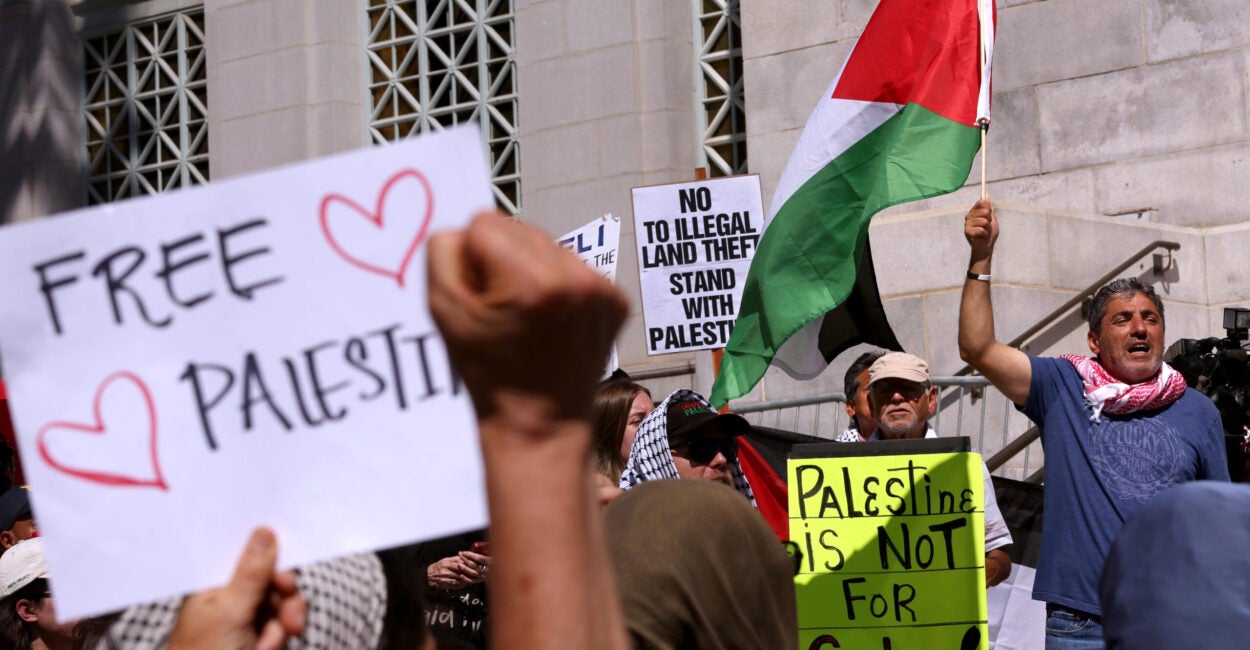


A federal judge ordered the University of Pittsburgh Thursday to let a pro-Palestinian activist group back on campus.
U.S. District Court Judge J. Nicholas Ranjan instructed the school to lift its suspension of Students for Justice in Palestine at the university, saying the rules the school based the suspension on likely violated the First Amendment.
The conflict between Students for Justice in Palestine and the university dates to December 2024, when the group staged a “study-in” at a library on campus, surrounding themselves with Palestinian flags, keffiyehs, and signs. That protest was shut down by university police officers.
In January, the university brought disciplinary action against the group, saying it had failed to comply with instructions from school officials.
In February, after the group sent an open letter calling on the school to drop the charges, the administration filed additional charges, saying the group violated the school’s code of conduct, which bans attempts to “intimidate …, coerce …, [or] influence” people involved in university proceedings, as well as attempts to disrupt or “interfere … with the conduct process.”
In March, the school issued a six-month suspension, which was set to expire on Sept. 18.
In April, the American Civil Liberties Union of Pennsylvania sued the school on behalf of the group, saying it violated the group’s First Amendment right to free speech.
On Thursday, Ranjan, a Donald Trump appointee, sided with the ACLU. According to Ranjan, the suspension infringed on the group’s “rights of association and speech” by preventing it from gathering or recruiting members. He said the school’s code of conduct rules—those banning intimidation and interference—swept “too broadly” and were likely unconstitutional.
This isn’t the first Students for Justice in Palestine chapter to face disciplinary action or worse. Chapters across the country, including at Tufts University; Rutgers; and the University of California, Los Angeles, have faced similar consequences for anti-Israel activism.
In March, Columbia University’s chapter was named as a defendant in a lawsuit brought by family members of those massacred in Israel on Oct. 7, 2023, who alleged the group had prior knowledge of Hamas’ attack.
After the Oct. 7 attack, Florida Gov. Ron DeSantis asked the state’s universities to close their Students for Justice in Palestine chapters, citing a Florida law that bans knowingly providing “material support … to a designated foreign terrorist organization.”
Florida officials pointed to a National Students for Justice in Palestine “toolkit” that referred to the Hamas attack as “the resistance” and said that “Palestinian students in exile” were “PART of this movement” (emphasis in the original).
Students for Justice in Palestine has around 350 chapters across the U.S., which are loosely affiliated with National Students for Justice in Palestine.
